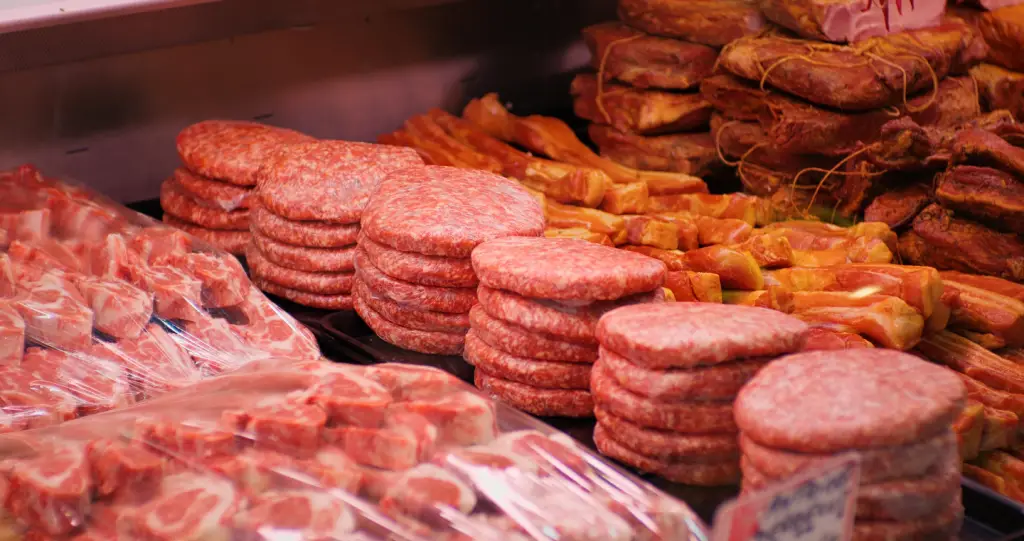Health issues related to the prostate are common among men, especially as they age.
The Centers for Disease Control and Prevention (CDC) reports prostate cancer was the second-most common cancer among men in 2019.
Benign prostatic hyperplasia (BPH) affects about half of all men between ages 51-60, Yale Medicine explains. That percentage increases to 80% for men ages 70 and older.
Prostate gland health can be influenced by a wide variety of factors. Some of the clearest risk factors listed by the American Cancer Society fall cannot be easily changed, or changed at all. These include age, geography, and family history.
However, other risk factors that are less understood but known to have a relationship to prostate cancer can be addressed. These include diet, obesity, and chemical exposure.
Medical research related to diet and prostate cancer is still ongoing. The exact nature of the relationships between certain foods and increased risk of BPH or prostate cancer is not completely clear. In other words, there are signs that certain foods are bad for prostate health, but we don’t know exactly why.
However, avoiding these foods may help you improve prostate health. If you’re wondering how to have a healthy prostate, dietary changes can be a good place to start. You have a great deal of control over your own diet.
We recognize the ongoing nature of current research and the need for more definitive results. With that in mind, consider these 7 foods to avoid for prostate health.
No one can guarantee that you can shrink your prostate with diet changes. However, you may be able to lower the risk of prostate health problems.
Making Dietary Adjustments: The 10 Worst Foods for Prostate Health
1. Beef
The World Health Organization (WHO) classifies red meat as “probably carcinogenic to humans.” It also explains that there are links, although not a conclusive connection, between eating red meat and prostate cancer.
A recent systematic research review published in the journal Frontiers in Nutrition found an important connection. Specifically, a connection between increased meat consumption and increased prostate cancer risk.
Beef is the most popular red meat among Americans. It’s also the second-most popular animal protein eaten in the US, behind chicken.
Reducing beef consumption may help to lower prostate cancer risk.
2. Pork
Pork is sometimes thought of as white meat. However, the US Department of Agriculture explains that it is in fact red meat. That’s an important distinction when it comes to prostate health, especially because pork is such a popular food.
For the same reasons explained above, reducing pork in your diet could help to reduce the risk of prostate cancer.
3. All Other Red Meats
Veal, lamb, mutton, and all other meats from mammals (as opposed to birds or fish) fall into the red meat category. These meats may increase the risk of prostate health issues.
4. Alcohol
A study published in the peer-reviewed journal Biomolecules found a strong link between alcohol consumption and the development of prostate cancer.
Alcohol consumption can also lead to many health-related risk factors. It’s generally a good idea to moderate alcohol consumption to support overall health.
5. Processed Meat
Processed meat is a broad category. It covers a variety of animal proteins that are somehow modified to improve taste and/or reduce spoiling. Hot dogs, lunch meats, and sausages are a few examples.
The Frontiers in Nutrition research review previously cited also found a connection between processed meats and increased prostate cancer risk.
6. Dairy
A study published in the Journal of Nutrition found a positive connection between total dairy intake and overall prostate cancer risk. It’s important to note the study focused on milk, hard cheeses, and ice cream as opposed to all dairy products. However, the potential prostate health risks associated with dairy products are worth considering.
7. Saturated Fats
Saturated fats, found in red meat and dairy foods among many others, may lead to increased risk of prostate cancer. Limiting your intake of animal-based products high in saturated fats may help to reduce that risk. You can consider replacing those saturated fats with products like olive oil, fish, and nuts.
Finding Support and Treatment for Prostate Health Issues
Understanding changeable risk factors related to prostate health can help you make healthier decisions. You can avoid the worst foods for prostate health listed above, for example. You can also choose to eat more foods that lower PSA levels, like the examples offered here by Healthline.
Prostate Laser Center helps patients explore treatment options for both prostate cancer and benign prostatic hyperplasia (BPH). Are you seeking treatment for BPH or prostate cancer? Request a consultation today.
NOTE: The information provided on this website is general medical information and does not establish a physician-patient relationship. Please discuss your particular situation with a qualified medical professional.


